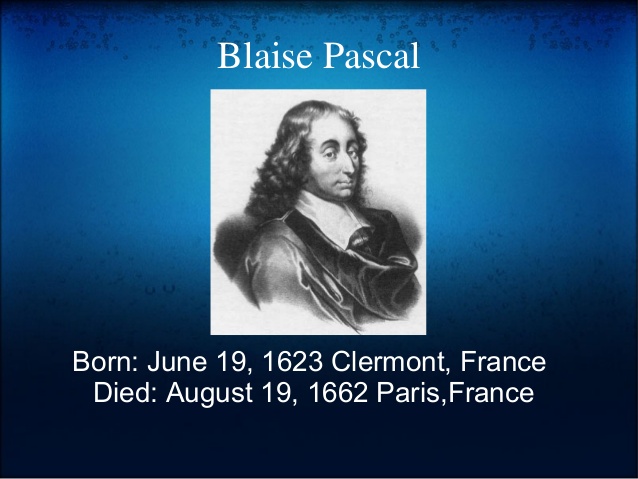Faith and Reason

Today is the birthday of mathematician, physicist, and religious philosopher Blaise Pascal. He was a child prodigy and by the time he was 19 he had already perfected the first mechanical calculator for sale to the public. In the field of physics he discovered that air has weight and proved that vacuums are possible in nature. In mathematics he founded the theory of probabilities and developed an early form of integral calculus. He also invented the syringe and the hydraulic press.
He was often torn between a spiritual life and a scientific one. When he was 23 he began to feel the need to withdraw from the world and devote his life to God. He did just that, for a while, but soon threw himself back into his scientific pursuits, working so hard he made himself ill. He returned to religion for good after a mystical conversion experience, which he called the “night of fire,” in 1654 and entered the Abbey of Port-Royal in January 1655.
It’s interesting that this genius found the religious and the scientific life to be incompatible with one another. That may be the case for many people, but it’s far from universal. I’m privileged to know lots of very intelligent people, and some of them are devout in their dedication to their faith.
Speaking strictly for myself, I’ve always thought like Pascal: one either believes in things for which there is empirical evidence or one does not. As I’m fond of saying, “You can’t have your metaphysical cake and eat it too.”
Throughout history, we’ve seen many writings that attempt to reconcile faith and reason. Perhaps the work of Thomas Aquinas, or maybe Rene Descartes, was the most famous. They strike me as exercises in verbosity for its own sake, but again, that’s just me.
